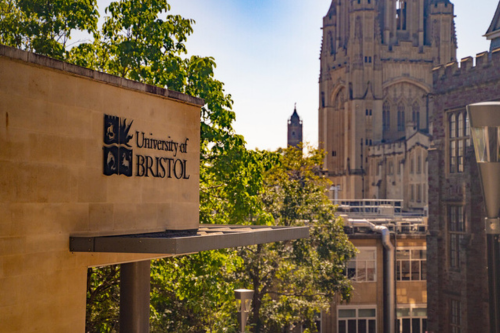Analysis showed that research and commercialisation activities, such as the creation of new spin-out companies, wider knowledge exchange and Intellectual Property licensing, helped to support close to 16,000 (15,935) jobs in the region. Across the UK, more than a quarter of a million (254,000) jobs - twice as many as in the chemical and pharmaceutical manufacturing industries combined - were supported by the 24 Russell Group universities combined.
The report shows how the universities contributed to economies in every single region and nation of the country, delivering research and innovation in sectors ranging from medicine to sustainable energy and the creative industries. This is in addition to the economic impact generated by wider productivity spill overs, teaching and education-related activities, and the fees and spending from international students.
Professor Evelyn Welch, Vice-Chancellor of the University of Bristol, said: “In addition to our education and research missions, the University of Bristol strives to make the world a better place by contributing to wealth creation, the economy, and positive societal change. One way we do this is through the commercialisation of our research.
“Bristol consistently ranks amongst the top performers in the UK for university spin-out company success. These innovative businesses are harnessing cutting-edge research in areas such as synthetic biology and AI to develop new solutions to global challenges like cancer and climate change.
“Our ambitious future plans, including for the £500 million Temple Quarter Enterprise Campus, aim to build on this success, empowering a new generation of scientists-turned-entrepreneurs to commercialise their research and form new spin-out enterprises. This will create jobs, attract inward investment, and support sustainable, inclusive growth and opportunity for our city-region.”
One example is the University of Bristol's established partnership with Science Creates - a deep tech ecosystem that offers high potential new businesses access to specialised incubator spaces, a dedicated Venture Capital fund (SCVC), and a comprehensive network of strategic partners to nurture science and engineering start-ups and spin-outs. Since opening the first incubator in 2017, 40 of the 83 members in Science Creates’ ecosystem – past and present – have been University of Bristol affiliated companies.
Its two central Bristol incubators offer laboratory, office and event space for deep tech start-ups, and member companies have created more than 370 jobs, adding £125m to the UK economy each year.
Following the report, the Russell Group is urging the Government to maximise the economic potential of the UK’s research-intensive universities by ensuring at least 3% of GDP is invested into R&D by 2030. The Group, which represents 24 leading research universities, notes that such a commitment by current and future Governments would not only bring the UK in line with other top research nations but also deliver further benefits to the UK economy in years to come.
In a letter to the Chancellor ahead of the Spring Budget, the Group asked the Government to use the Budget to deliver on its existing commitment to invest £20bn in R&D by 2024/25.
Dr Tim Bradshaw, Chief Executive of the Russell Group, said: “These findings demonstrate the immense value our universities add in every single corner of the UK. The data clearly shows that investing in R&D and innovation at Russell Group universities reaps huge benefits for local economies and communities, with hundreds of thousands of jobs created and new enterprise supported, thanks to high quality research across a range of disciplines.
“Russell Group breakthroughs are helping accelerate efforts to reach Net Zero responsibly, transforming the way UK companies do business and providing the NHS with new ways to save lives and cut waiting lists. Good choices and sustained investment from government has been crucial to this success.
“Now is the time to build on this success with robust funding to future-proof the skills and talent pipeline that is so vital to the growth of our economy – and to ensure that the research and innovation that originates within universities will continue to make a tangible, positive impact on people’s lives”.
Professor Lisa Roberts, President and Vice-Chancellor of the University of Exeter said: “Universities play a crucial role in the UK, not just as places of learning and social mobility, but also acting as catalysts for innovation, research and development that help the economy, businesses and society to thrive.
"Crucially, we are also at the forefront of delivering innovative new solutions and skills that are needed to drive forward the transition to Net Zero. Initiatives such as our Green Futures Solutions help companies and organisations access our talent and innovation to seize new opportunities in the growing green economy and help their workforce develop the skills they need to succeed in a rapidly changing world.
"Our Strategy 2030 is centred around our commitment to ensuring a greener, healthier and fairer future for everyone. The impact to the regional and national economy of our world-leading research in these areas is front and centre of all we do."
